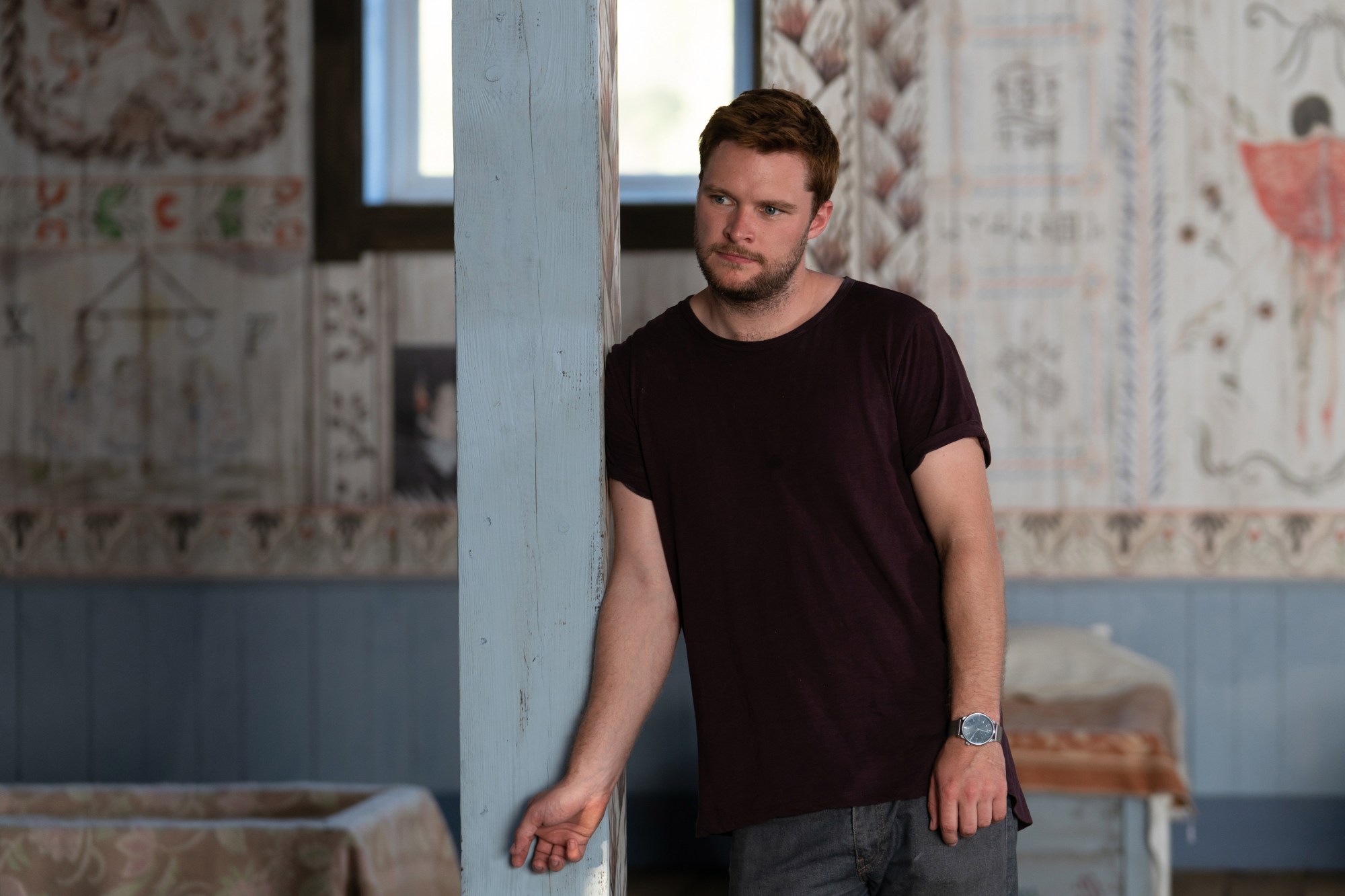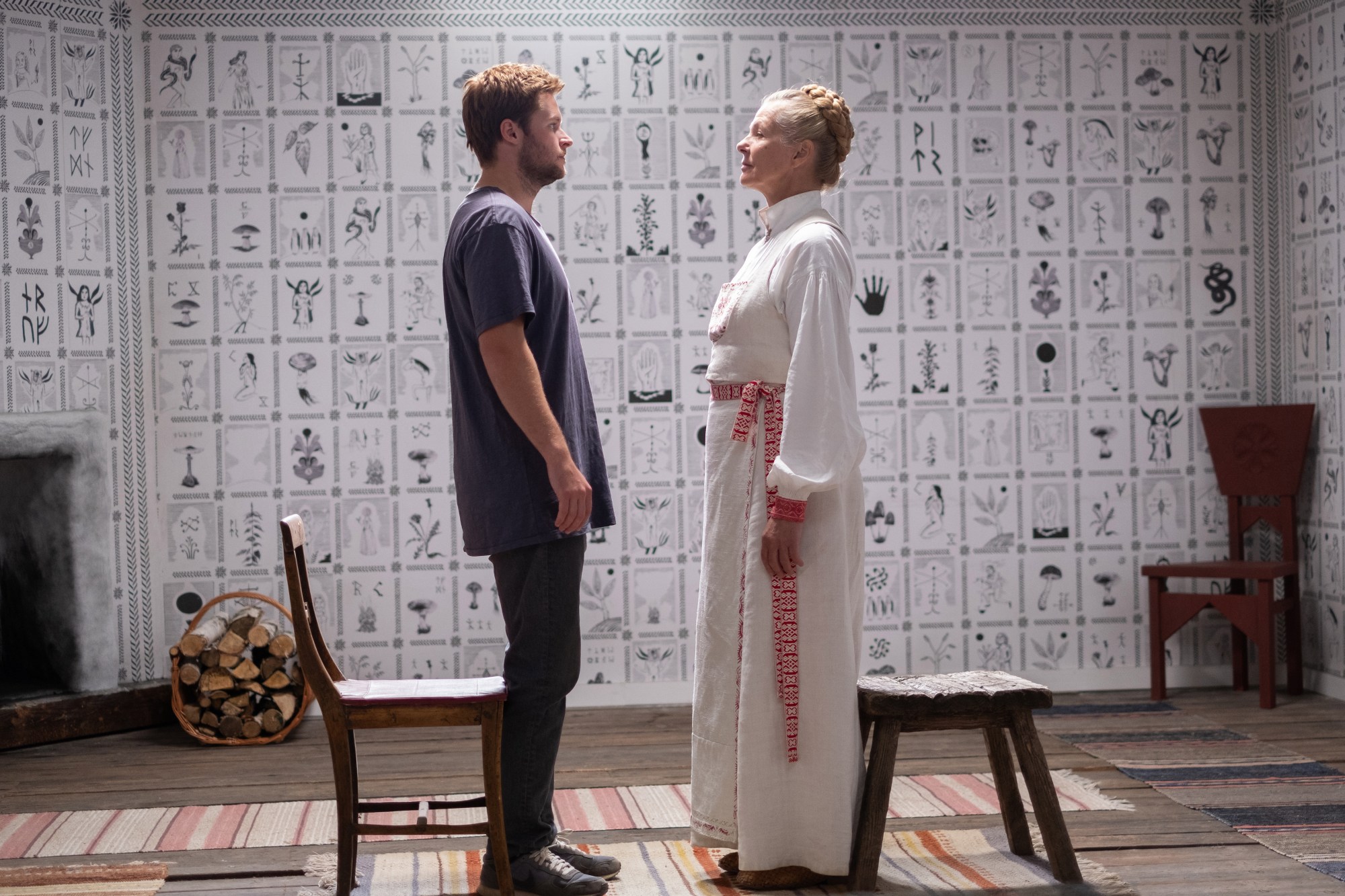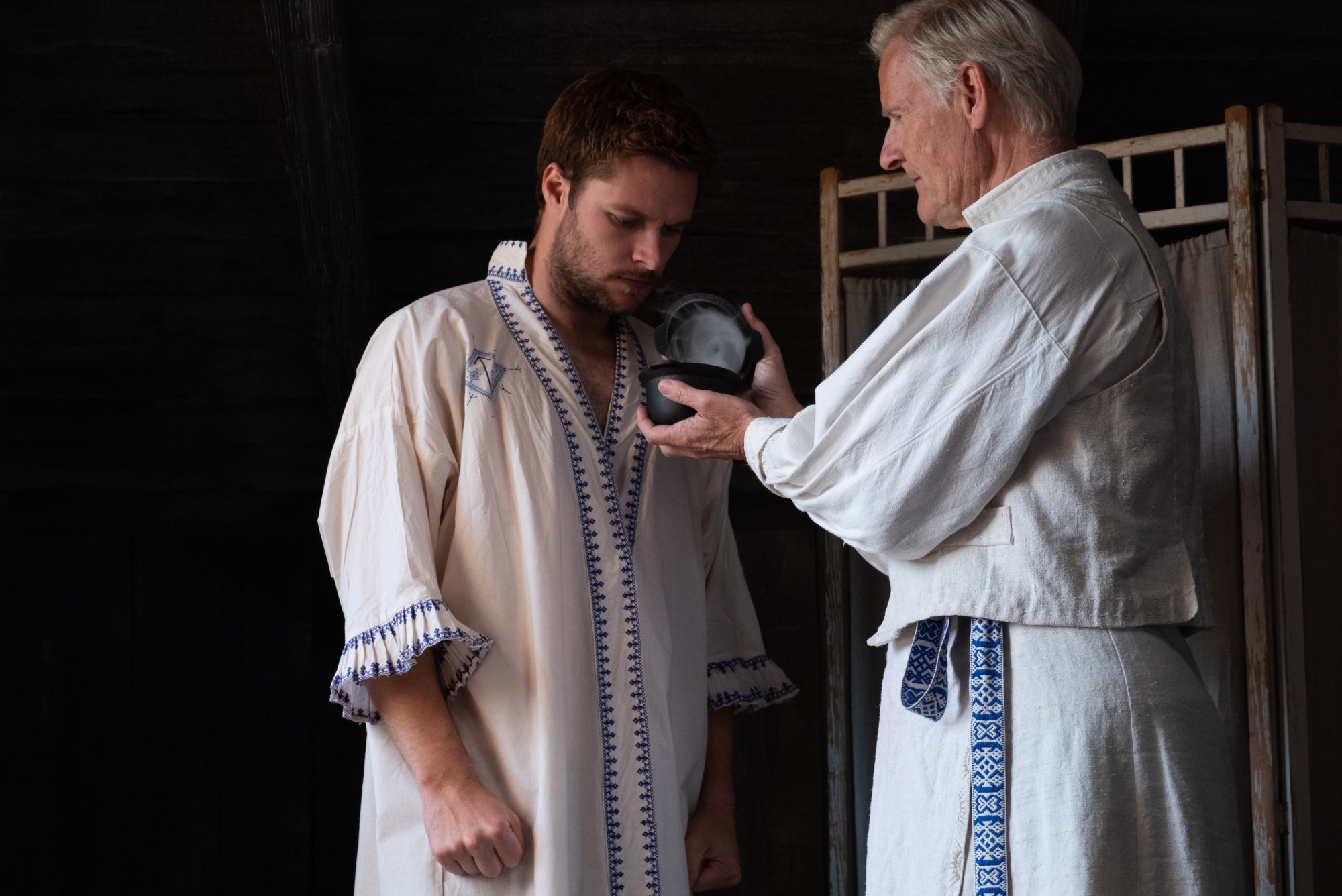Ari Aster’s stunning follow-up to last year’s widely acclaimed Hereditary will make you question everything — your values, the concept of time, how much horror you can consume in one sitting.
Midsommar follows Dani (played by Florence Pugh) and Christian (Jack Reynor), a young couple who are on the verge of breaking up but bound by the raw grief of a shocking family tragedy that Dani endures at the start of the film. In an attempt to get over it, Dani invites herself on a trip Christian has planned with his friends to a remote Swedish village to attend a unique midsummer festival. Little do they know that the quaint village is actually home to a bizarre pagan cult.
It’s the height of summer in Sweden and the sun never sets. This provides a unique context for the film’s slow-burning suspense and immediately sets Midsommar apart from other scary movies. “In conventional horror films there’s a lot of surprise horror and things jumping out of the dark at you,” says Reynor, “but with this film almost everything is in broad daylight, so the horror is on display all of the time.”
Midsommar is loaded with symbolism, and Aster went to an obscene level of detail in creating the world of the film, building the village from the ground up (in Hungary, not Sweden, due to production restrictions), and even inventing a language and runic alphabet for the film. He says he wrote the script four years ago, after being approached by a production company “with a broad idea about Americans visiting Sweden for a special iteration of the midsommar festival and being killed off, one by one. Something in the same world as Hostel.”

That idea didn’t entirely interest him, he says. “But I was going through a breakup at the time and when this pitch came my way I saw a way of marrying the breakup movie that I wanted to write with the folk-horror genre.” Because the production company was such a fan of his previous film, Hereditary, Aster was given a lot of freedom, and he says, “I was able to make it very personal. From there it became something very close to me.”
Aster went “really deep into research” as he was writing the film, drawing on Nordic folklore in close collaboration with Swedish production designer Henrik Svensson. That research “provoked a lot of peripheral ideas” that were strewn across the film. “The first cut was three hours and forty minutes, so there’s a lot that we had to cut out of the movie. There’s a lot of detail that’s no longer there.”
What is there is a densely curated collage of images that enrich the film. Quite literally: the walls of the buildings in the village are papered with illustrations that tell the story of the cult. It’s the kind of film you could watch again and again and find new meaning in every time. Flowers hold great significance; they’re everywhere — dotting the fields of Hälsingland, adorning the heads of the cult members (like a quasi Coachella), and later seeming to almost physically envelope one of the characters as they become a fully fledged cult member.
Aster is cautious, however, to confirm any interpretations of details in the film, opting to leave it to the viewer to decide. “I prefer not to say too much, because I feel like it’s there to be wrestled with and considered. I don’t want to close any doors.”

Part of the fun of Midsommar is letting its crazy world wash over you. The film is so immersive and the visual effects so intricate that you feel like you’re high on the same drugs as the characters. Every time they take psychedelic mushrooms or sip a mysterious concoction, the landscape around them morphs in concert with their consciousness.
The visual effects also help to convey the trauma that Dani is dealing with, that Pugh so compassionately portrays. When Dani learns of her family’s tragedy at the beginning of the film, the camera work becomes blurry and chaotic. It’s empathetic filmmaking at its finest, allowing us to physically feel the discomfort and chaos that she is also feeling.
Christian’s lack of compassion towards Dani as she grieves becomes a big part of the film, and something both Dani and viewers of the film want avenged. During the Q&A after the premiere at Alamo Drafthouse in Brooklyn, Christian was condemned by the moderator, who basically said he got what he deserved. (Which, without spoiling it, seems extremely harsh.)
“I was a little taken aback and I continue to be taken aback by people’s reactions,” Reynor admits. “I think a lot of people would find that we’ve all been both of these people, numerous times in our lives. We’ve been people who are in need of emotional support, who can be overly needy at times,” he says, referring to Dani. “And we’ve also been the person who is, at times, insensitive and might be well-meaning, but doesn’t necessarily have the capacity to do the right thing,” he says, referring to Christian.

“I don’t think that this guy is just categorically a dick and that he’s just an awful person. I think that he’s a complicated character in his simplicity, because he’s not a particularly intelligent guy, and he doesn’t have a lot of self-awareness. I’m just not entirely convinced that his punishment is really fitting for his crimes, you know?”
Reynor says that what his character went through in Midsommar made him empathize with women and what they’ve historically endured in horror films. “I’ve seen so many films that feature scenes of horrific sexual violence towards women, and those scenes often are really, really expositional of the women. An example that I keep coming back to is The Last House on the Left, which is a Wes Craven movie from 1972. The stuff that the girls who played those parts had to go through for the sake of filming the scenes in which they’re sexually assaulted and killed must have been traumatizing. And the big pay-off, where the guys who did it are killed, it’s nothing like what those girls would have had to go through. And there’s nothing expositional for those guys in it — there’s no nudity, there’s no sexual violence against them that’s seen on camera. Everything is obscured so that they don’t have to deal with that shame and humiliation.”
Reynor says Midsommar “turned that whole thing on its head” by making his character the one to suffer greatly. But even then, Reynor says, “The stuff that my character goes through is nothing on some of the stuff that I’ve seen female actors have to deal with, throughout the history of cinema. It’s not even that extreme, what I went through. But it felt very, very difficult and very exposing and it definitely made me feel very vulnerable at times.”
Midsommar is a challenging watch on many levels — from its visceral horror to the way it makes you reassess your beliefs. Dani finds empowerment and transformation in the rituals of the Hårga people, and you might even feel yourself pulled along for the ride. This is a pertinent and frightening part of the film, as it shows how the seeds of toxic ideas can be planted in the vulnerable. It will make you question your own resolve, and you’ll also probably never want to touch another meat pie in your life.

